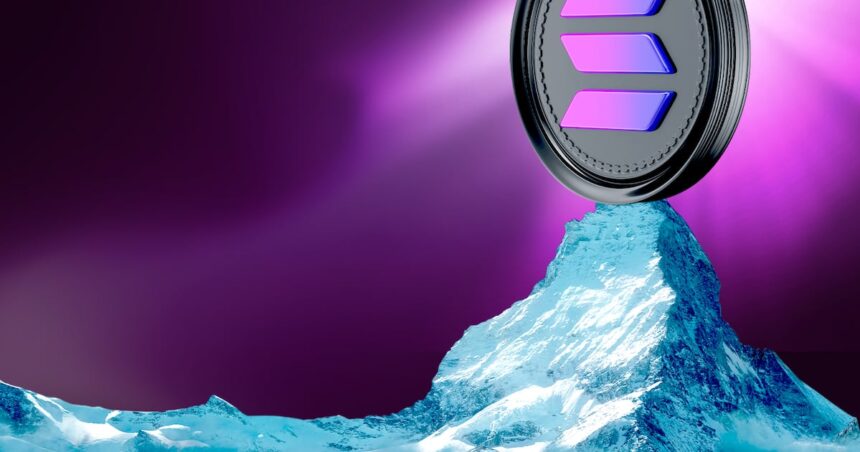Solana validators have recently approved a critical component of the highly anticipated Alpenglow upgrade, which promises to significantly enhance the blockchain’s performance and decentralization. Preliminary findings indicate that Alpenglow could potentially reduce Solana’s latency to as little as a tenth of a second, a substantial improvement over the current 13 seconds. This upgrade is seen as a pivotal step towards addressing concerns about the centralization of the blockchain, which has been a longstanding criticism despite its advantages over Ethereum in terms of speed and cost.
Research by venture capitalists Mustafa Qazi and Gurnoor Narula outlines that Alpenglow, along with other proposed changes, could reform the distribution of validator revenue, making it more equitable. “Becoming a small profitable Solana validator is virtually impossible,” Qazi noted on X. However, he expressed optimism that Alpenglow, coupled with dynamic inflation adjustments, could help smaller validators succeed.
Despite its advantages, Solana has faced scrutiny for its centralization. Currently, the blockchain has about 1,000 validators, significantly fewer than Ethereum’s million-plus. The power dynamics are concerning, with fewer than 100 validators controlling more than half of the total stake, which raises fears of further concentration as these entities benefit disproportionately from rewards tied to newly minted tokens.
The Alpenglow upgrade is expected to level the playing field for smaller validators, allowing them to break even and thrive in the ecosystem. Qazi and Narula emphasized that reducing overly generous revenue sources for high-stake validators, especially concerning inflation rates, is an achievable step toward a more balanced validator population.
The Alpenglow upgrade has drawn comparisons to Ethereum’s Merge, which revolutionized its consensus mechanism and drastically reduced energy consumption. If implemented, Alpenglow would optimize real-time applications such as gaming, high-frequency trading, and instant payment systems, enhancing Solana’s appeal.
With a broad scope requiring careful implementation, the Alpenglow upgrade is likely to be divided into about 50 sub-proposals in the coming months. The first proposal, approved on September 2, introduced changes to the voting system used by validators to approve proposed blocks, potentially lowering annual voting fees that can exceed $60,000. By transferring voting off the blockchain, Alpenglow aims to eliminate these fees, hence lowering entry barriers for aspiring validators.
While Qazi and Narula assert that the upgrade may not dramatically affect the overall decentralization measured by validator profitability, it is expected to improve profitability for validators, thereby opening doors for further changes in token distribution. A previously proposed reduction in annual rewards for stakers, amounting to $3.5 billion, could be on the table again, following a narrow defeat earlier this year. Advocates suggest that a modified proposal might find success this time around.
Furthermore, discussions have centered around reducing the Validator Admission Ticket (VAT), a fee designed to prevent a surge of low-quality validators. The current VAT is set at 1.6 SOL (approximately $350), which some argue is a substantial hurdle for new entrants. Calls for a reassessment of this requirement point to concerns that it creates an environment favoring existing validators while discouraging new participants from entering the space.
The team behind Alpenglow includes researchers from ETH Zurich, a renowned institution for science and technology. They chose the name to evoke the serene yet powerful pinkish light that illuminates Swiss mountaintops during dawn and dusk. Alpenglow could see implementation as soon as late 2023 or early 2026, and it has already garnered support from key figures within the Solana community, including co-founder Anatoly Yakovenko and developer Mert Mumtaz.







